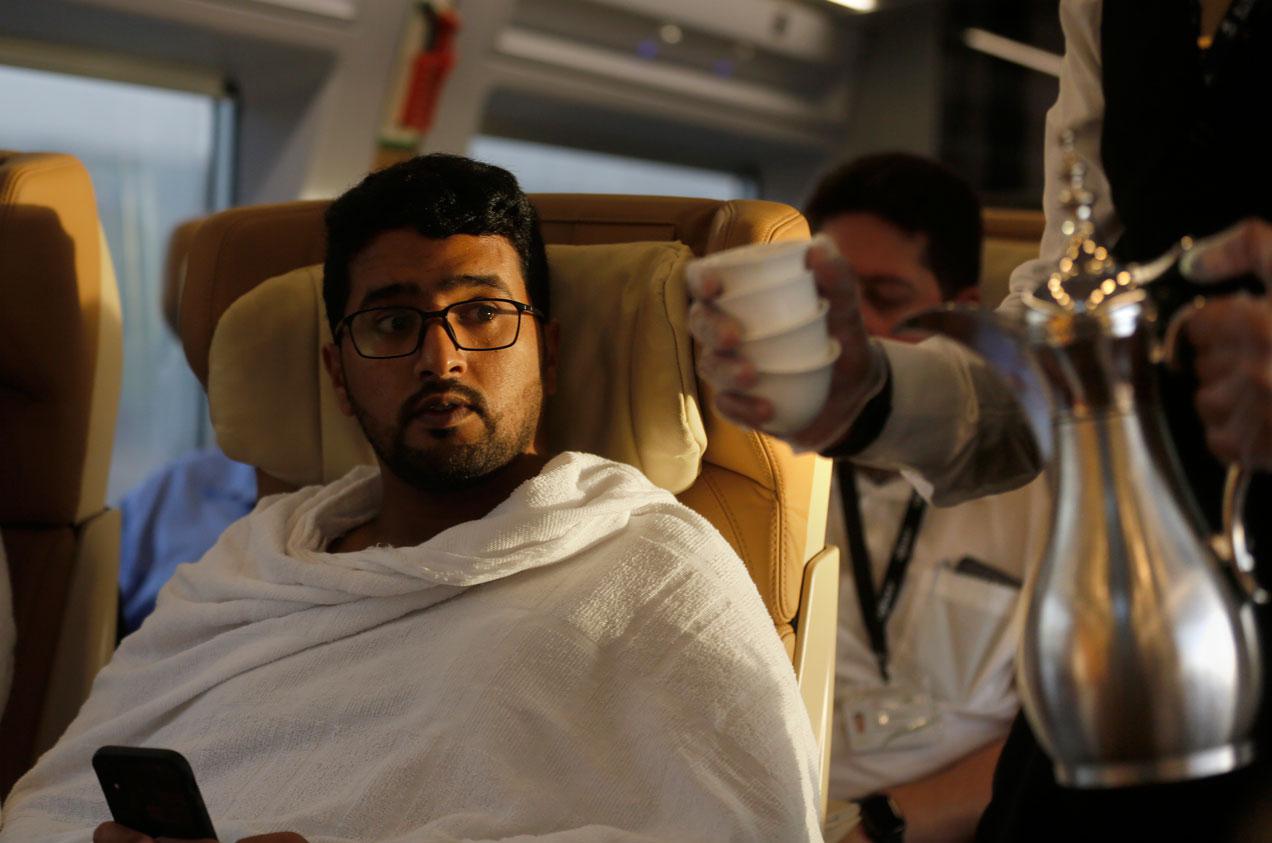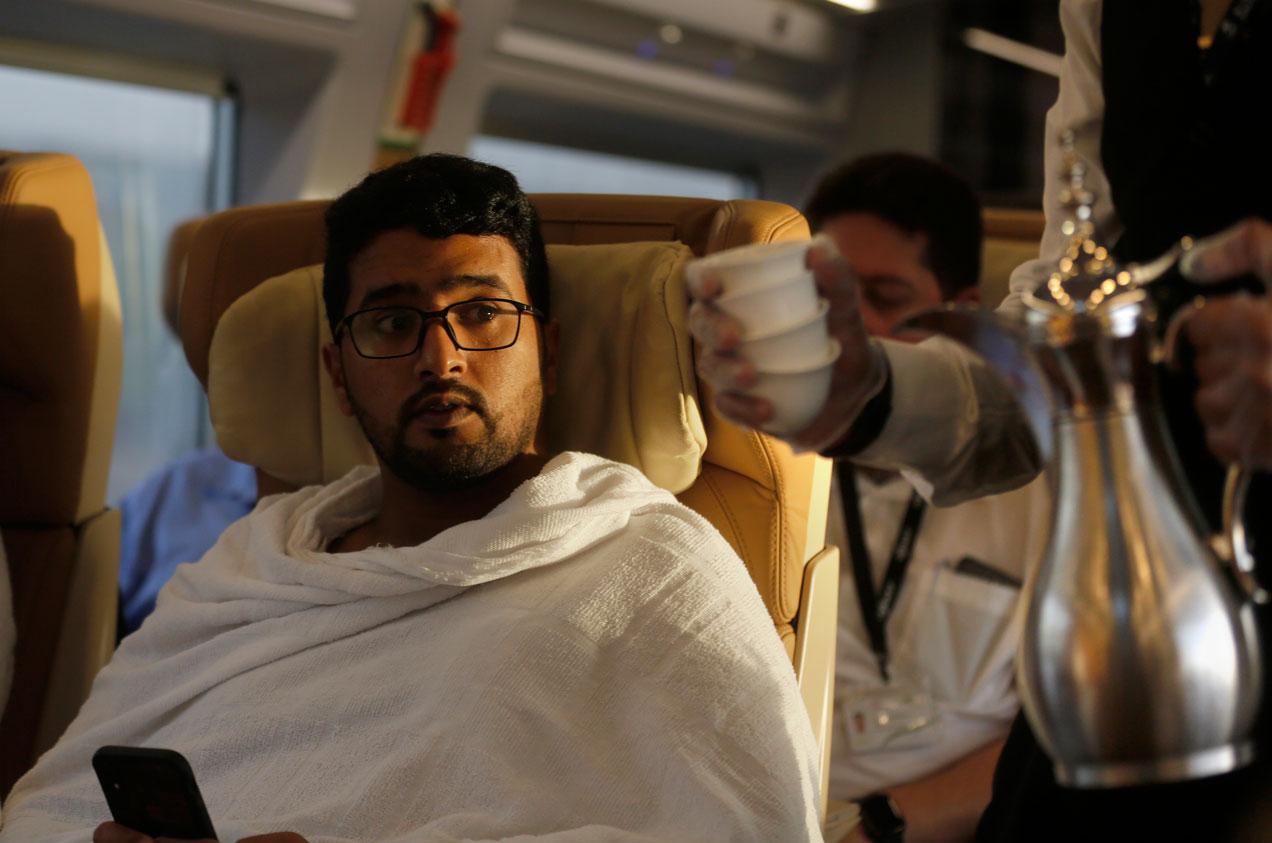Muslims begin hajj as Saudi warns against 'politicisation'
MECCA - More than two million Muslims begin the annual hajj on Friday as the Saudi hosts seek to deter politicisation of the pilgrimage against a backdrop of simmering Gulf tensions.
The hajj, one of the world's largest annual religious gatherings, is one of the five pillars of Islam and must be undertaken by all Muslims with the means at least once in their lives.
Those on the hajj view the pilgrimage as an opportunity to strengthen one's faith, erase past sins and start anew.
It consists of a series of religious rites which are completed over five days in Islam's holiest city and its surroundings in western Saudi Arabia.
"All of the arms of state have been deployed (and) we are proud to serve as 'God's hosts'," said security forces spokesman Bassam Attia.
In total, some 2.5 million faithful, the majority from abroad, will undertake the pilgrimage this year, according to Saudi media.
"More than 1.8 million visas were delivered online without the need for middlemen. It's a success," said hajj ministry official Hatim bin Hassan Qadi.
"We feel cleansed by achieving this pillar of Islam and meeting people from across the world. It's marvellous," said Mohamed Jaafar, a 40-year-old Egyptian pilgrim.
'An indescribable feeling'
The hajj in Islam is meant to be a great equalizer and unifier among Muslims, with pilgrims shedding overt displays of wealth and materialism.
All male pilgrims wear simple terry cloth white garments and women don conservative dress and headscarves, forgoing makeup, nail polish and perfume in an effort to draw closer to God and engage in intense worship for the five-day hajj.
But that asceticism stands in contrast to the displays of wealth and decadence that Saudi Arabia is know for. For the well-heeled, the hajj pilgrimage includes a partial stay in towering five-star hotels with lavish buffets overlooking the Kaaba, and trips to shopping malls and stores carrying luxury Western brands.
For most dedicated Muslims, however, it means sleeping in simple accommodations or even spending weeks sleeping on the ground around Mecca's Grand Mosque to perform daily prayers and rites near the Kaaba.
Many pilgrims will save for years to perform the hajj. Charities and wealthier Muslims often also help fund those unable to cover the costs.
"It's an indescribable feeling. You have to live it to understand it," said an Algerian in his fifties completing the pilgrimage for the first time.
"It's a golden opportunity and moment," said his female companion.
Built in a desert valley, Mecca is home to the Kaaba, a cube structure that is the focal point of Islam and draped in a gold-embroidered black cloth.
Muslims around the world pray towards the Kaaba, which is located in the Grand Mosque, and pilgrims walk around it seven times.
Worshippers participated in weekly prayers late on Friday morning.
"The whole world is here... being here in Mecca is the best feeling," said Mohamed Barry, a pilgrim from Britain.
In addition to being financially costly, the hajj is physically demanding, involving much walking and travel between various points along the route.
To ease the journey, the Saudi kingdom recently unveiled the first phase of a new high-speed train connecting pilgrims between holy sites in the cities of Mecca and Medina. The kingdom also has a new e-visa system in place for pilgrims.
During the pilgrimage, separate streams of men and women, grouped by nationality, will travel to Mina on foot or in buses provided by the authorities.
A district of Mecca, Mina sits in a narrow valley surrounded by rocky mountains and is transformed each year into a vast encampment for pilgrims. A total of "350,000 air-conditioned tents have been pitched" this year, a Saudi official said.
Worshippers will climb Mount Arafat, also known as the "Mount of Mercy", for hours of prayers and Koran recitals.
After descending, they will gather pebbles and perform the symbolic "stoning of the devil". That marks the beginning of Eid al-Adha, the festival of sacrifice, marked on Sunday.
Pilgrims then return to the Grand Mosque to perform a final "tawaf" or walk around the Kaaba.
'Politicising the hajj'
The pilgrimage this year takes place amid a backdrop of political and sectarian tensions. Muslim minorities around the world face increased threats, with Uighurs facing repression in China, Rohingya facing genocide in Myanmar and Kashmiris under a sweeping curfew and communication blackout in Indian-administered Kashmir.
Saudi King Salman invited as his guests to the hajj this year 200 survivors and relatives of victims of a shooting spree in Christchurch, New Zealand, where a white gunman opened fire and killed 51 people in two mosques.
This year's hajj also takes place with a backdrop of tensions between Saudi Arabia and Iran and as conflicts continue to flare in Yemen, Syria and Libya.
Riyadh blames regional foe Tehran for a series of attacks on tankers, the downing of drones and the seizure of ships in the Gulf, accusations Iran vehemently denies.
Despite the absence of diplomatic ties between the two countries, some 88,550 Iranian pilgrims are due to take part in the hajj this year according to Iran's Tasnim news agency.
As in previous years, Saudi authorities have been at pains to stress that the hajj is a religious event and have sought to prevent its politicisation.
Riyadh insisted its two-year embargo on Doha -- which includes restrictions on Qataris travelling to the kingdom -- would not affect the pilgrimage.
But hajj official Hassan Qadi acknowledged "very few Qataris have come to Mecca for the pilgrimage".
Saudi Arabia's hajj ministry put the blame for the lack of Qatari pilgrims squarely on Doha, accusing it of "politicising the hajj and creating obstacles for Qatari pilgrims," the official Saudi Press Agency reported.
The scale of the pilgrimage presents vast security and logistical challenges, with tens of thousands of safety officers deployed.
Riyadh faced strong criticism in 2015 when some 2,300 worshippers were killed in the worst stampede in the gathering's history.
To curb the potential for a viral outbreak of any kind, Saudi Arabia this year stopped issuing visas to people from Congo, citing the Ebola outbreak there.



